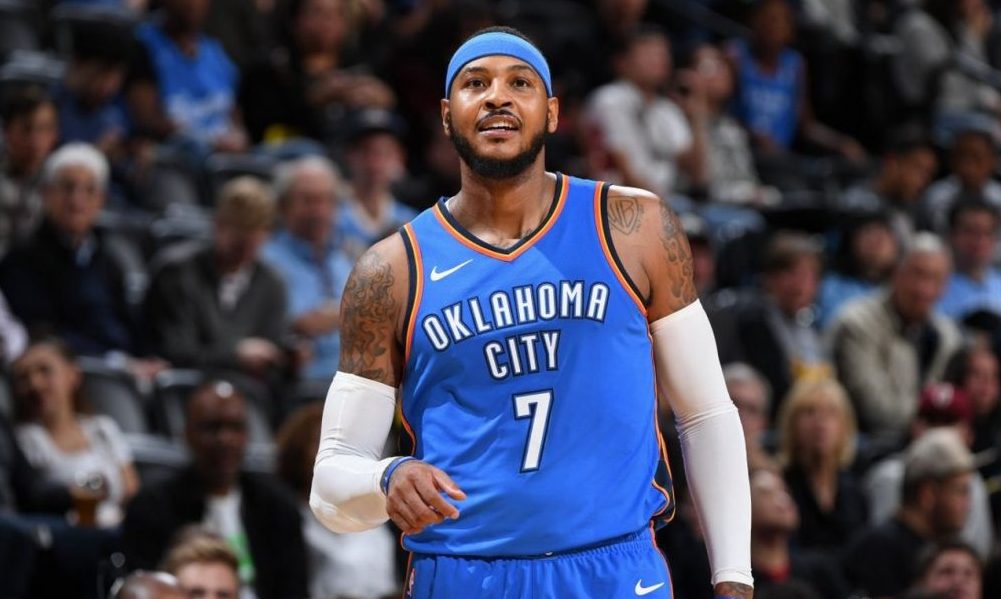The Rockets made a surprise trade on Thursday, sending the contract of Victor Oladipo and three second-round picks to Memphis for center Steven Adams.
The deal came together quickly and the Rockets had a small window to get it done, hence why this trade was made with a week to go until the trade deadline.
When you consider that Memphis did this for cost savings primarily and that Adams would not play for any team in the league this season, the price seemed a little high to me. The Rockets gave up the OKC second-round pick this year, which is no big loss, but they also give up the better of Brooklyn’s or Golden State’s second-round pick this season. That’s a pretty good pick (likely in the late 30’s). They also give up the better of Houston’s or OKC’s second-round pick in 2025. If things go as planned for the Rockets, that pick should be in the 45-55 range.
But they didn’t sacrifice a first-round pick, which would have been brutal, and they were not going to use all those seconds this season. So it’s just a matter of opportunity cost — who else could they have gotten for this package?
My understanding is they (particularly Ime Udoka) are very high on Adams.
The Rockets also did this move for cap purposes as well. By moving out the Oladipo contract, which was expiring, and bringing in Adams’ deal, which is signed for $12.4M next season, the window for the Rockets to put together a trade package for a star player is extended out until the 2025 trade deadline. They continue to wait to see which players, if any, shake loose here and become available. They want flexible (see: expiring) contracts that they can combine with assets and this gives them another year to be in that position.
It’s not often that the Rockets acquire a player I had not considered beforehand but that’s the case with Steven Adams. The Rockets sorely need a big with size that provides more traditional center strengths, making Clint Capela, Robert Williams, Nick Richards or Daniel Gafford potential candidates, but Adams was overlooked for a few reasons.
First, the 30-year old big man is out for the season after knee surgery cost him the entire 2023-24 campaign, so the Rockets won’t get any benefit from this trade this season. Secondly, Adams is not your traditional center either when it comes to rim protection.
But what Adams does do, he’s really good at and he has some of the same strengths of Brook Lopez, who the Rockets tried to sign in the offseason. Adams is quite possibly the strongest guy in the league and a legitimate 6-foot-11 with a 7-foot-5 wingspan. He’s an outstanding screen-setter, something that could really benefit the likes of Fred VanVleet, Amen Thompson and Jalen Green. He was also an elite rebounder last season, finishing 6th in the league in caroms at 11.5 a game despite playing just 27.0 minutes a contest.
After watching Jonas Valanciunas absolutely bully the Rockets inside on Wednesday, it should be apparent by now to everyone that this was a pretty big need.
In 2021-22, the Memphis Grizzlies finished #2 in the West at 56-26. Their top two players in Net Rating that season were Dillon Brooks (+11.0) and Adams (+8.3), key cogs in a defense that held opponents to 108.6 points per 100 possessions. They’re both now Houston Rockets.
So this adds another trusted vet to Ime Udoka’s rotation.
The question is will the 30-year old Adams return to form after the knee injury? Adams sprained the posterior cruciate ligament in his right knee a year ago, which cost him the end of that season and the playoffs. He tried rehabbing it and it never got better, so surgery became the option just as this season was kicking off.
I like to think the Rockets did their due diligence on that, despite the short time it took for this deal to come together, but that’s unclear.
If he does bounce back, then Udoka has a big man he can turn to reliably in situational matchups or on nights when the younger bigs struggle. He wouldn’t be Boban or even Jock Landale in that scenario — he’s going to play, so the frontcourt depth in 2024-25 should be better. In the end, they got a starting-caliber center who will have no problems coming off the bench, and that’s what they were looking for.

